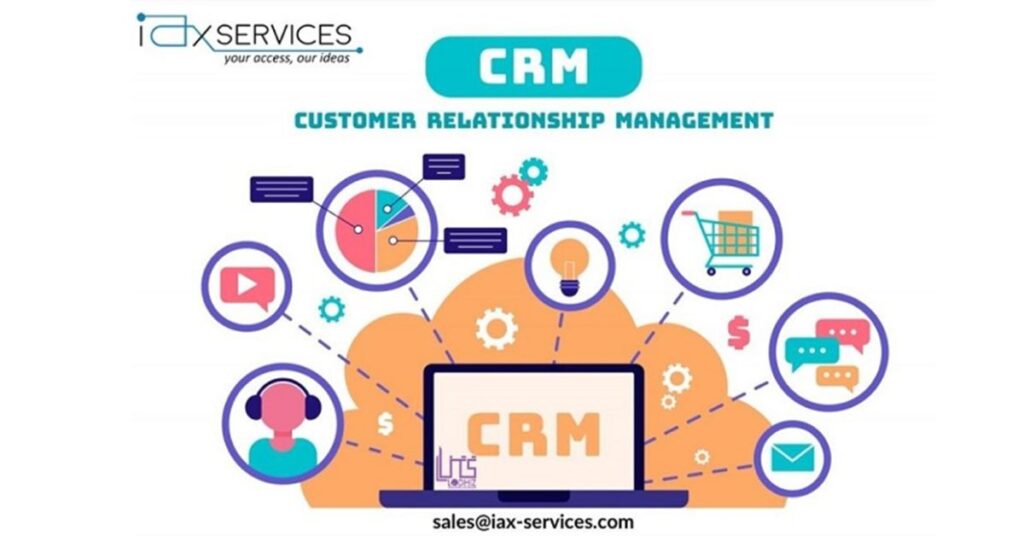Microsoft CRM (Customer Relationship Management) is an essential tool that helps businesses manage interactions with customers and prospects. From sales chats and email exchanges to customer service touchpoints, CRM brings all these interactions under one roof for easy tracking and management.
With Microsoft Dynamics CRM, your business can consolidate key information on a single platform. This allows sales, marketing, and customer service teams to access and utilize the data they need to close deals, deliver top-notch support, and design personalized marketing campaigns. By leveraging CRM tools, businesses can:
- Centralize data by eliminating silos and offering a unified view of customer information.
- Drive business growth by equipping employees with advanced features for sales and service.
- Empower teams to better understand customer behavior, increasing upselling and cross-selling opportunities.
- Deliver the exceptional service that today’s customers demand.
- Utilize AI-driven insights to refine products or services.
- Automate repetitive tasks to simplify operations.
While CRM already offers remarkable capabilities, integrating it with Microsoft 365 can amplify productivity and transform how businesses manage operations and collaboration.
Why Integrate CRM with Microsoft 365?
Microsoft 365 is a comprehensive suite of productivity tools that includes well-known apps like Word, Excel, Outlook, SharePoint, PowerPoint, and Teams. Combining these tools with Dynamics CRM creates a powerful ecosystem that enhances teamwork, streamlines workflows, and delivers actionable insights for smarter decision-making.
Let’s explore the benefits of this integration:
1. Unified Data Management
One of the standout advantages of integrating Dynamics CRM with Microsoft 365 is the seamless data exchange between the two platforms. This integration synchronizes data, allowing employees to access CRM information directly within Microsoft apps like Outlook, Excel, and Teams.
With a centralized data repository, teams can reduce manual data entry errors, eliminate silos, and enhance overall efficiency. The result? Smooth data management and improved employee productivity.
2. Strengthened Collaboration
Effective communication and collaboration are vital to any business. By integrating CRM with Microsoft 365, your teams can utilize Microsoft Teams to its full potential.
Teams from sales, customer service, and marketing can effortlessly collaborate on projects, share files, and communicate—all while accessing CRM data within the Teams app. This streamlined approach fosters stronger interdepartmental coordination and boosts overall efficiency.
3. Enhanced Productivity
This integration boosts team productivity by enabling users to manage workflows directly from familiar tools like Outlook. Sales representatives, for instance, can handle emails, schedule appointments, and track sales activities without switching between applications.
Automation further simplifies routine tasks, freeing up your workforce to focus on high-value activities. Tools like Microsoft Power Automate allow businesses to create workflows that reduce errors and minimize manual intervention.
4. Advanced Data Insights
With CRM data integrated into Microsoft 365, your organization can leverage powerful analytics tools like Power BI. This integration makes it easier to analyze data from multiple sources, providing actionable insights into customer behavior, sales trends, and market opportunities.
Power BI’s interactive dashboards help businesses visualize performance metrics, tailor marketing efforts, and discover new opportunities for growth.
5. Improved Customer Engagement
The integration of Dynamics CRM with Microsoft 365 gives your teams a holistic view of customer interactions. Whether through sales conversations, social media engagements, or support calls, teams can access customer data from any Microsoft app.
This unified approach empowers employees to deliver personalized experiences, enhance customer satisfaction, and strengthen relationships with both new and existing customers.
6. Scalability and Flexibility
Since both Dynamics CRM and Microsoft 365 are cloud-based solutions, they offer excellent scalability. As your business grows, the integration adapts to meet your needs, ensuring a seamless expansion of operations without the need for costly infrastructure upgrades. Additionally, the integration can be customized with add-ons to suit specific business requirements.
Conclusion
Integrating Microsoft CRM with Office 365 can significantly improve collaboration, productivity, and customer engagement. Partnering with an experienced Microsoft Dynamics 365 provider ensures a smooth implementation process tailored to your business objectives.
Whether your organization is based in the Middle East, Europe, North America, Africa, or Asia, expert Microsoft partners are readily available to guide you. For businesses in the UAE, Saudi Arabia, Qatar, Oman, and beyond, partnering with a trusted consultant ensures you get the most out of this powerful integration.
Take your business to the next level with Dynamics CRM and Microsoft 365 integration.







